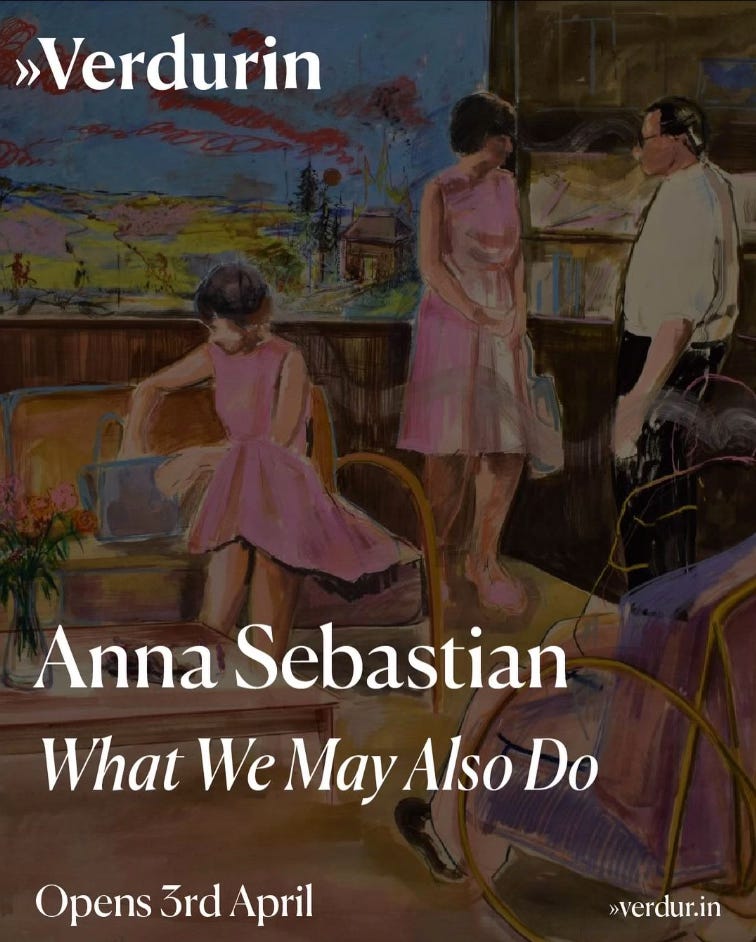Some debates and topics seem so large, so molar, they loom like icebergs in the horizon of intellectual life … colonialism is one such topic—yes, I’ve read (and taught) Fanon, but the deep history of the debate is, well, in large part a foreign country to me. To amend this lack, I thought I’d jump in at the deep end with Bruce Gilley’s The Case for Colonialism the publication of which in 2017 eventuated in the resignation of multiple members of the board of Third World Quarterly—the text was republished in Academic Questions in the summer of 2018 and Gilley responded to the controversy in 2022. Gilley’s original text is credited by Compact contributor Nigel Biggar for inspiring his own book Colonialism: A Moral Reckoning (2023).
As a side note, it’s interesting rewatching Chris Marker, Alain Resnais, and Ghislain Cloquet’s beautiful Les statues meurent aussi (Statues Also Die) from 1953, just how far removed mainstream academic culture is from his expansive and even heroic international humanist vision (“Because there is no rupture between African civilization and ours. The faces of black art fell from the same human face, like serpent’s skin. Beyond their dead forms, we recognize this promise, common to all the great cultures, of a man who is victorious over the world”).
Gilley notes that “there is no easier way to discredit a political idea or opponent than to raise the cry of ‘colonialism.’” A few years on from the toppling of slave trader Edward Colston in Bristol, and the blunt and largely discredited claims of the 1619 Project, is a genuine discussion of the topic possible?
Latest pieces in Compact
We began the week with the estimable Stanley Payne and his review of two new collections: Did It Happen Here?: Perspectives on Fascism and America, edited by Daniel Steinmetz-Jenkins, and Fascism in America: Past and Present, edited by Gavriel D. Rosenfeld and Janet Ward. Payne, one of the world’s leading experts on the topic, notes that in our perpetual present, “fascism” has become “the standalone super-demonic political ideology, almost beyond normal empirical political analysis.”
Alexander Nazaryan wrote about AOC and Marty Dolan, who seeks to oppose her in NY’s 14th congressional district. Nazaryan notes: “Even as many progressive cities begin to rethink the criminal-justice reforms that surged in popularity after the George Floyd protests four years ago, [AOC] continues to insist that policing, not crime, is the problem.”
Next, we published Musa al-Gharbi with a deep-dive on the Clintons. al-Gharbi argues that turning to the Clintons represents a misstep for Biden: “As the Democrats have leaned into the culture wars at the expense of kitchen-table issues, they’ve seen accelerated losses among non-white, working class, and low-income voters, as well as religious minorities. Nonetheless, Joe Biden still hopes to revitalize his campaign by appealing to the two public figures who helped launch the modern political era: Bill and Hillary Clinton.”
Adam Lehrer had a great encounter with the prophetic work of Stan VanderBeek, noting that VanderBeek believed keeping up with technological and cultural change “was imperative, and that it was a 20th-century artist’s responsibility not to try and slow down the information chain but to run along with it.”
Our weekend read is novelist Alanna Schubach on a forgotten campus scandal. In a thoughtful and reflective piece, Schubach suggests that “the urge to protect the vulnerable has morphed into something more troubling, and in the process has turned many young people, especially young women, away from agency and maturity.” I think about this often: there seems to have been a twisting of humanity’s natural sympathy towards unworthy causes on the one hand, and towards a fetishization and perpetuation of victim-status on the other. It’s not that bad things don’t happen—they do, and often, and sometimes we are responsible, and others we are not, but we seem to have forgotten that the aim is to learn to cope with set-backs and akwardnesses, rather than rotate them into an identity.
Nina Recommends
This week, East London project space Verdurin opened with a show by painter Anna Sebastian entitled What We May Also Do. Sebastian’s work taps into a world half-forgotten, half-integrated where a young woman—Gloria—undertakes experimental therapeutic interventions for the camera. Drawing upon Three Approaches to Psychotherapy from the 1960s where Carl Rogers talks to Gloria, Sebastian’s work mines the seam between space age and the jungle of the unconscious mind as forests mingle with cosmic pods and the weather is always just a little bit too weird...
Verdurin promises a whole host of seminars, plays, shows and discussions in the near future. It’s very good to have such places and times. Thanks to Pierre d’Alancaisez and Benjamin Nevin for hosting. To badly paraphrase—the only way through is (to go) out.
Until next week—Nina








I've been interested in Gilley for a couple of years, but he just went up a bit in my priorities. Thanks for the heads up about Biggar's work!